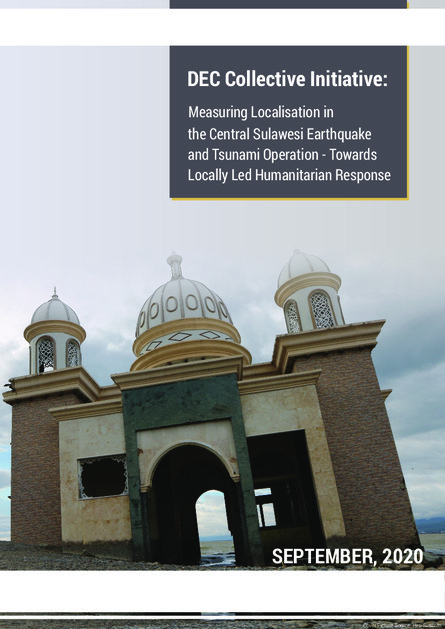
In the aftermath of the earthquake, tsunami and liquefaction in Central Sulawesi in September 2018, the Government of Indonesia decided to limit the access of international actors and give priority to those with local partners. This created a unique context for the localisation of humanitarian aid Disaster Emergency Committee member organisations responded to this policy by partnering with local and national actors to implement emergency response. In doing so, they advanced towards their goal of creating more genuine and equitable partnerships to attain more locally-led humanitarian responses This study sought to capture lessons and good practices from the Central Sulawesi response. The research team collected data about the partnership practices using eight interviews two focus group discussions and a quantitative survey of 40 respondents from humanitarian and government agencies. Analysis of the data resulted in six main findings and seven recommendations.
This report informs the ongoing work to develop a framework for locally led humanitarian response in partnership-based action, and highlights how DEC member organisations, partners and other stakeholders pivoted their humanitarian operations to respond to COVID-19.